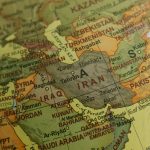The Politics of Ivory: Changing the Paradigm of ‘Western Conservation’

Illegal wildlife trade is currently one of the largest “black market” industries that exist in the world. This estimated multi-billion-dollar business has caused devastating consequences for the world’s ecosystems and biodiversity. Illicit wildlife trade can take many forms but can be generally defined as the unlawful harvest and trade of live animals and plants, or parts and products derived from them. Ivory has long been one of the most in-demand commodities within the illegal wildlife trade, with most of its ivory coming from poaching of African elephants.
Roughly 90% of African elephants have been wiped out in the past century, mainly due to this trade. Each year close to 20,000 African elephants are poached for their tusks – which amounts to around 55 elephants per day. In the last decade, the numbers of poached elephants have soared due to a resurgence in demand, particularly from China and South-East Asia for this illegal commodity. The brutal poaching of these intelligent giants poses a threat not only to the survival of African elephants as a species but also has far-reaching ecological consequences across the continent.
An international ivory trade ban was agreed in 1989, under The Convention on International Trade in Endangered Species of Wild Fauna and Flora (CITES), which is a global treaty aimed at regulating international wildlife trade and protecting endangered species. This international treaty did produce beneficial results. However, the ban has also been a point of contention within Africa and has consequently created a strong division in within the global conservation community.
The main opposition to this ban comes from countries in the Sub-Saharan region, who have pressed for the regulated trading of ivory from elephants that have died from natural causes. They argue that the revenue generated from this trade could be utilized to strengthen badly needed conservation efforts across the region. However, countries from the Global North have opposed their demands as they support the complete ban of ivory trade.
The political question that ultimately underpins this debate is whether Western countries should grant African states autonomy to deal with this issue. Some African states have argued that poaching and illegal ivory trading is largely a domestic issue and that Westerners have come to a conclusion on a matter that does not concern them. Some have begun to label the role of Western nations in African elephant conservation efforts as a return to their imperialistic ways within the continent.
Additionally, there is another problem that arises. Following decolonization, the relationship between the West and Africa has largely been defined through development aid, which has fostered a donor-recipient relationship. Many African states have failed to develop independently as the aid they receive has largely led many African states to become dependent on foreign assistance. Although this issue is off a different nature, one needs to question whether the West should continue to intervene in all issues African, or is it time to allow them to deal with their issues independently?
The strict legislation that African states are expected to follow with regards to ivory trade and development aid that Western states provide to Africa share one fundamental factor: they fail to take into account the domestic conditions in many African states. When it comes to the ban on ivory trade, there is little to no consideration given to the fact that African states ultimately do not have the resources and general means to adhere to such stringent guidelines.
What is apparent here is that although on the surface level Western states consistently say that they wish for Africa to develop into a strong, independent and prosperous continent, they often prevent them for taking opportunities that may allow this to happen. Unfortunately, it is difficult to imagine world free from poaching and illegal wildlife trade. However, there is hope that illegal wildlife trade can be significantly reduce. Yet in order for this to occur, the current measures need to be revised.
Most importantly, the exclusionary nature of these policies, which has explicitly or implicitly removed African governments and also local communities from the conservation efforts needs to be changed. The demands from African states need to be taken into consideration. Although finding the most effective solution to such a multi-faceted and deep-seated issue will no doubt take time and patience, one thing is for certain – there needs to be a shift in focus to community-and nation-based conservation. This would ultimately provide groups in Africa with a sense of ownership over elephants, and thus a responsibility to conserve the species as well. Africa must be liberated from some of its post-imperialistic oppression. Returning conservation to hands of African people can aid in this challenge.
Further Readings:
- https://www.dw.com/en/cites-elephant-ivory-ban-upheld-but-legal-loopholes-remain/a-50118236
- https://www.theguardian.com/global-development/2019/jun/26/lift-ban-ivory-trade-southern-african-leaders-summit
- https://theconversation.com/its-time-to-break-the-deadlock-over-africas-ivory-trade-heres-how-122153



